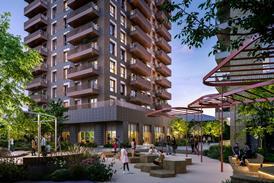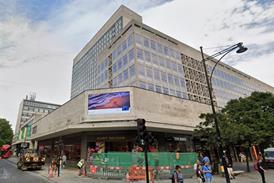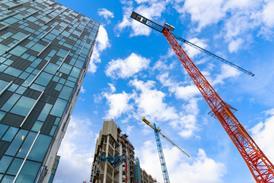A survey of nearly 900 professionals found more than a third had experienced insults relating to protected characteristics

New research published by Arb has revealed “staggering” levels of discrimination and sexual misconduct experienced by architecture professionals in the workplace.
A survey of 898 architecture professionals found higher levels of discrimination and sexual misconduct than in other sectors which publish similar research, including academia and parts of the medical profession.
One in four female professionals have experienced unwelcome sexual advances and nearly two in five had experienced unwelcome sexual comments, while more than a third of all architectural professionals had experienced insults, stereotypes or jokes relating to protected characteristics, according to the survey.
This number was found to be higher for women, at 53%, while 46% of both ethnic minorities and people with disabilities reported similar experiences.
Despite the prevalence of workplace misconduct uncovered in the research, it found a third of all professionals would not feel confident raising concerns if they experienced or observed misconduct due to fears that it would not be taken seriously or would impact their career.
The research was carried out by independent agency Thinks Insight & Strategy, which was appointed by Arb following concerns raised by architecture professionals during the regulator’s survey on its education reforms.
Arb chair Alan Kershaw said the body had been “appalled” at the findings of the research, which included detailed interviews with 15 survey participants.
He said: “Architects play a vital role in society. The public rely on their competence and need them to behave ethically, to treat people with respect, and to raise concerns should they have any.
“The vast majority of architects are good professionals who behave ethically. But we are appalled to learn that many of them suffer higher levels of discrimination and sexual misconduct than some other professions.
“There is a clear need for leadership here; all professionals in the built environment sector need to support a better culture for a better built environment.”
In response to the findings, Arb now plans to set firmer professional standards for architects through its new code of conduct and practice and include supplementary guidance on leadership and inclusion.
The regulator said it will also provide tools to support professionals in raising concerns and challenging unethical behaviour, and collaborate with other sector leaders to promote changes in behaviours and conduct.
Examples given by participants indicate issues of workplace misconduct span the wider built environment sector, with some professionals reporting inappropriate behaviours on construction sites or in client meetings, with others sharing experiences which started at university.
RIBA president Muyiwa Oki said the evidence made it clear that the “entire profession must act”.
“RIBA is deeply concerned by the findings of ARB’s research, which reveals widespread discrimination and sexual misconduct in the profession. This type of behaviour cannot—and will not—be ignored,” Oki said.
He added that championing workplace wellbeing was a priority for RIBA, which is preparing to publish findings of its own investigation, and that the institure was “ready to take bold steps”.
Mark Thompson, managing partner at Ryder Architecture, said the research “starkly illustrates the failures of our sector” and the importance of embedding a “tangible shift in mindset”.
“The architectural community needs to wake up to the damage it is causing to its people, quality of work and reputation through the persistence of toxic behaviours,” he said.
















No comments yet